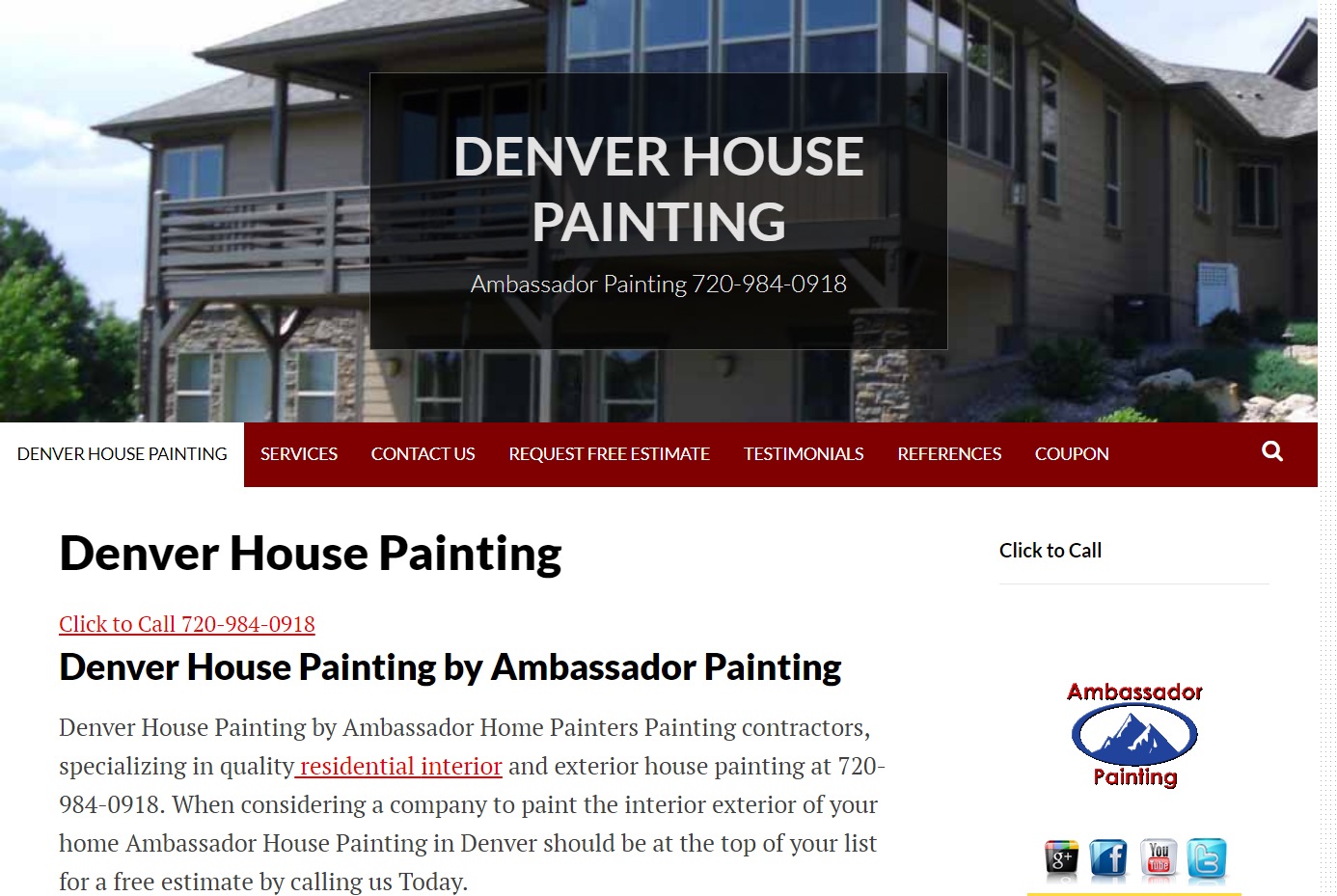I've seen this done many years ago by a guy who did all sorts of jobs where I lived. My dad caught him painting his boss's roof and he was watering down the paint. We've had a hard time trying to get a painter for our house. We've had a guy that had been remmended by a neighbor and he hasn't showed up to paint for 2 weeks. I want to call him and my husband says no. I'm 69 years old and I'm about ready to go and paint our 2 porches, I've painted all my life and all the inside of our home. Maybe that's the way it should be with everyone that can paint pretty good. https://www.youtube.com/watch?v=b6_WEt9k_Hw
Specialty painting by the hour costs between $40 to $50 on average. Paint might range between $75 to $90, costing an additional $40 to $50 per hour. The painter's skill and experience are also determining factors in the cost of specialty painting. While a freelance artist might charge $25 to $30 an hour, a very skilled professional might charge $80 or more. Some painters might also charge $60 or more for a consultation. Trompe l'oeils, in particular, will run on the expensive end of the price spectrum. Return to Top https://youtube.com/v/b6_WEt9k_Hw
When you choose Five Star Painting residential house painting contractors, you can feel confident that you are hiring the best in the business. Local Five Star painters have been serving clients throughout the United States and Canada since 2004. From taking time to prepare the area to using exactly the right equipment for each job, we make sure the project is done correctly. Our experience shows: We’re good at what we do, and our clients are always happy with the work we leave behind!
If your home was built before 1979, the paint might contain lead, which is extremely hazardous to children age 6 and younger. Call your local public health department for information on how to check for lead and handle lead paint safely. For a free booklet on dealing with lead paint, contact the U.S. Environmental Protection Agency at www.epa.gov/lead.
We had a bad experience with an interior painter years ago, with the crux of the problem being him overcharging us at the end for "extra work" he didn't anticipate. One thing I'd strongly recommend is making sure it's in the contract that any additional work or growth work is estimated and communicated to the owner as soon as it is identified, otherwise the owner is not liable to pay it at the end.
If you paint over dirty, oily surfaces, the paint will easily chip or peel off. So before painting, clean grimy areas with a deglosser or heavy-duty cleaner intended for prepaint cleaning. They work well to clean painted, varnished or enameled surfaces to improve the adhesion of the new paint. They’re ideal for cleaning greasy or oily areas like kitchen and bathroom walls and removing hand marks around light switches and doorknobs.
house Painting Images
Over the past year I have had several jobs given to 2 Angie's list recommendations and 1 not from a recommendation. They all have one thing in common, lack of sufficient and correct preparation to save time, labor, and the fact that they put a person in charge that was a cut corners type of worker. The two from Angie's list sent worker/s back to try touch up problems, but once the job is not prepared correctly in the first place any extra work is like putting a band-aid on a dirty wound.
I turn away any job when the client refuses to pay anything up front. It sends a red flag. I also charge a scheduling fee which is non-refundable. I get 33 percent when I show up and begin work. Another percentage halfway through, and the balance upon completion after client is satisfied. There needs to be skin in the game for both parties as a measure of good faith. If you are dealing with a reputable company (did your due diligence, right?) why wouldn't you want to pay something as work progresses? We do this not only because we love to paint but we require cash flow to stay in business. There is not always 'money in the bank' as you suggest. It's tough these days. The suggestion buy 'Kim' 'Never pay a contractor a deposit' is nonsensical. http://www.youtube.com/e/b6_WEt9k_Hw?app=desktop
As a former professional painter, something that drives me crazy is when I see painters cut in around wall plates. First of all, the amount of time that it takes to cut in is usually much longer than the amount of time that it takes to simply remove the wall plate. Secondly it does not look nearly as clean as it does when the wall plate is removed and thirdly it can invariably leave paint on the wall plate itself which also looks sloppy. Make sure the painter takes them off and then reinstalls them. It's less time.
Dedicated to developing long-lasting relationships with our customers, our skilled commercial painters always strive to give you the quality you expect in a timeline that’s unexpected. At Genesis Total Exteriors, our customers never have to worry about poor workmanship or property damage. Our expert commercial painters have a ton of experience in providing interior and exterior painting services to all types of businesses, including:
painting Of House
Consider purchasing supplies personally to save money. Ask the painter for a bid that separates labor and materials. Then explain that you'll purchase the materials and ask for a list of exactly what will be needed to complete the job. Caulking, for example, is an extra supply commonly used to fill any cracks or damaged areas in your walls -- and one that might be overlooked in an incomplete list.
The materials of the home’s facade should be considered before painting your home. When painting flat surfaces like siding or wood, you can opt for standard outdoor paint. When painting a textured surface like stucco or brick, “elastomeric” paint is a much better choice. This type of paint can stretch more than normal paint, which allows it to bridge over small gaps and crevices, painting smoothly over texture.
Stacee, I agree with you completely, from adding water to latex paint to taking whites from job to job. This article makes all painters look like scam artists. You get what you pay for people! There is no denying that there are scammers out there but in my experience, most painters are under paid any ways so if you want a good paint job, you are going to pay for it. If you just want a new color on your walls real quick, and that is what you pay for then that's what you pay for people. Most painters get the crap end of the stick and are left with making an entire house look good when it took a lot more than a painter to build the house in the first place. Good painters do not get enough credit. They are not all scammers who are cutting corners!
State your expectations. The number of coats a painter applies isn’t the only factor in determining the quality—and price—of the project. Preparation is also key. If you want a surface that’s free of unevenness from past paint jobs, tell the contractors—and be prepared to pay extra. But if you can live with some imperfections, agree on what level of prep is acceptable and what isn’t.
Whether you decide to do the preparation work yourself or have a professional do it as part of your project, proper preparation makes all the difference in creating a smooth and lasting finish. Sure, it adds to your the total time and money spent on your project, but it's certainly worth doing the job right the first time. Otherwise, you'll spend additional time and money down the line on maintenance and repairs. To ensure proper preparation, follow this process before painting your home's exterior (keeping in mind that the process may vary based on exterior materials):
Refresh the interior of your home: If you’re feeling like the interior of your house could use a change, try painting a few of the rooms a new color. Over time, paint can start to wear and become faded. Brighten up the rooms in your home by painting them a new color, or even just doing a new coat of the same color. You’ll be amazed at how refreshed the space looks. https://www.youtube.com/watch?v=b6_WEt9k_Hw&feature=youtube_gdata

